Abstract
Increased attention has been directed recently to assisting persons with severe handicaps to express preferences concerning events in their lives. We evaluated a program for assessing choice-making skills to provide opportunities for persons with profound mental retardation to express food and drink preferences. In Experiment 1, the assessment procedure involving repeated, paired-item presentations resulted in active choice making and the identification of preferences for all 5 participants. Results also indicated that caregiver opinion was not predictive of participant food and drink preferences. A survey of service providers supported the importance of meal-related choices in this population. In Experiment 2, the practicality of the assessment procedure was supported by demonstrating that (a) routine caregivers could apply the procedure with appropriate supervision to provide choice opportunities, and (b) results of the procedure were predictive of participant choices when a less structured and more normal opportunity to express a preference was provided during regular mealtimes. Results are discussed in terms of extending the developing technology of preference and reinforcer identification to other important areas for persons with severe disabilities.
Full text
PDF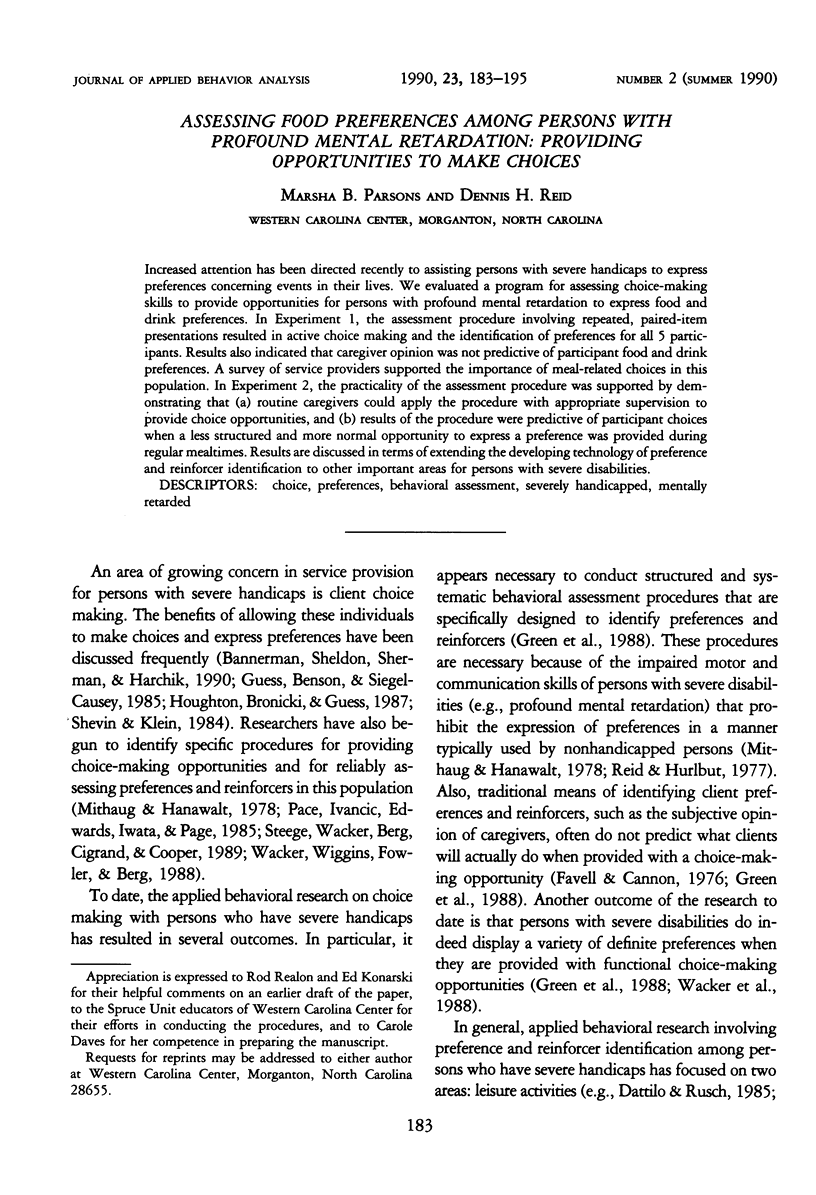
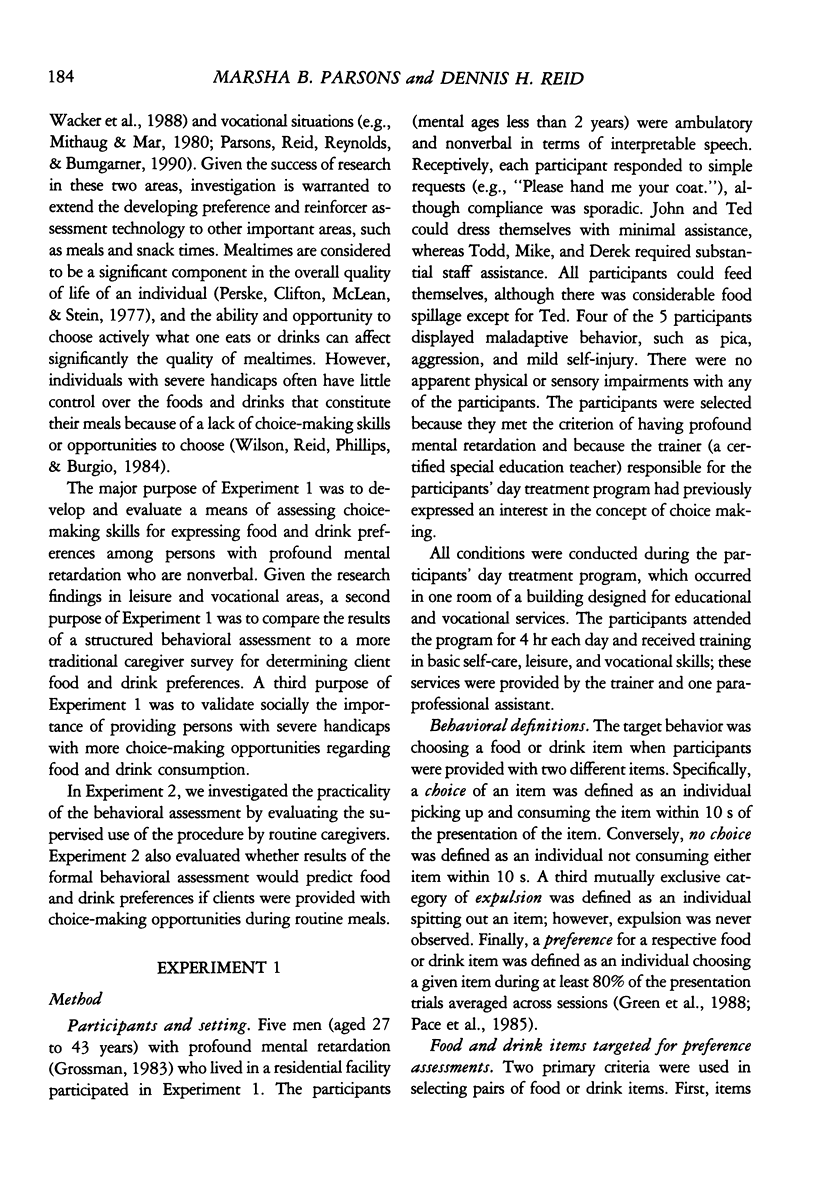
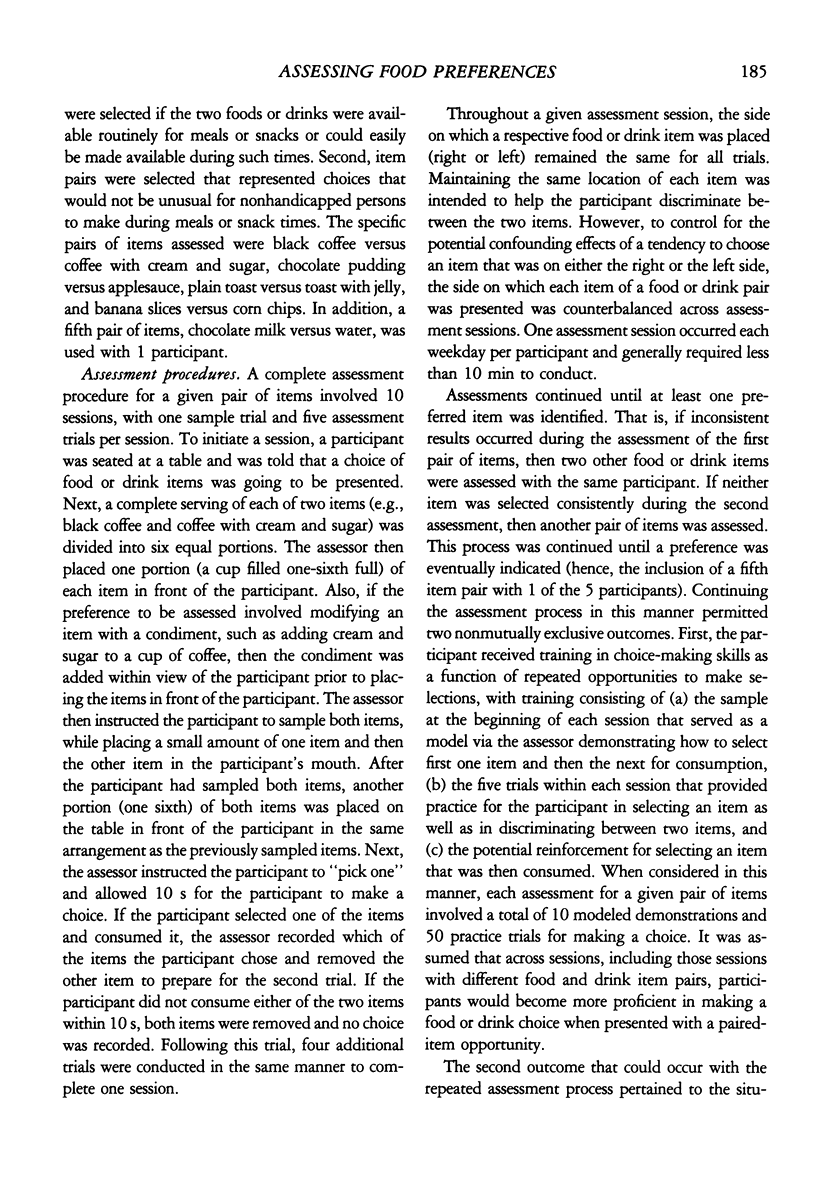
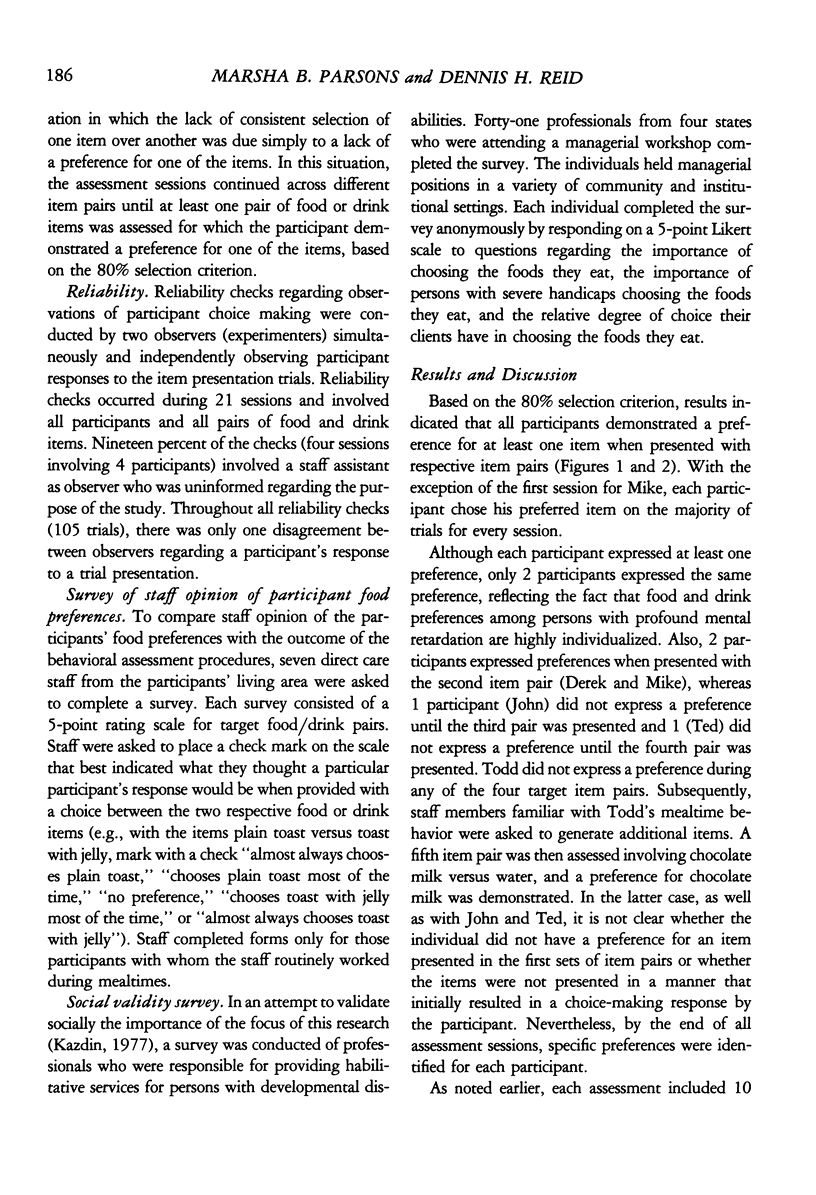
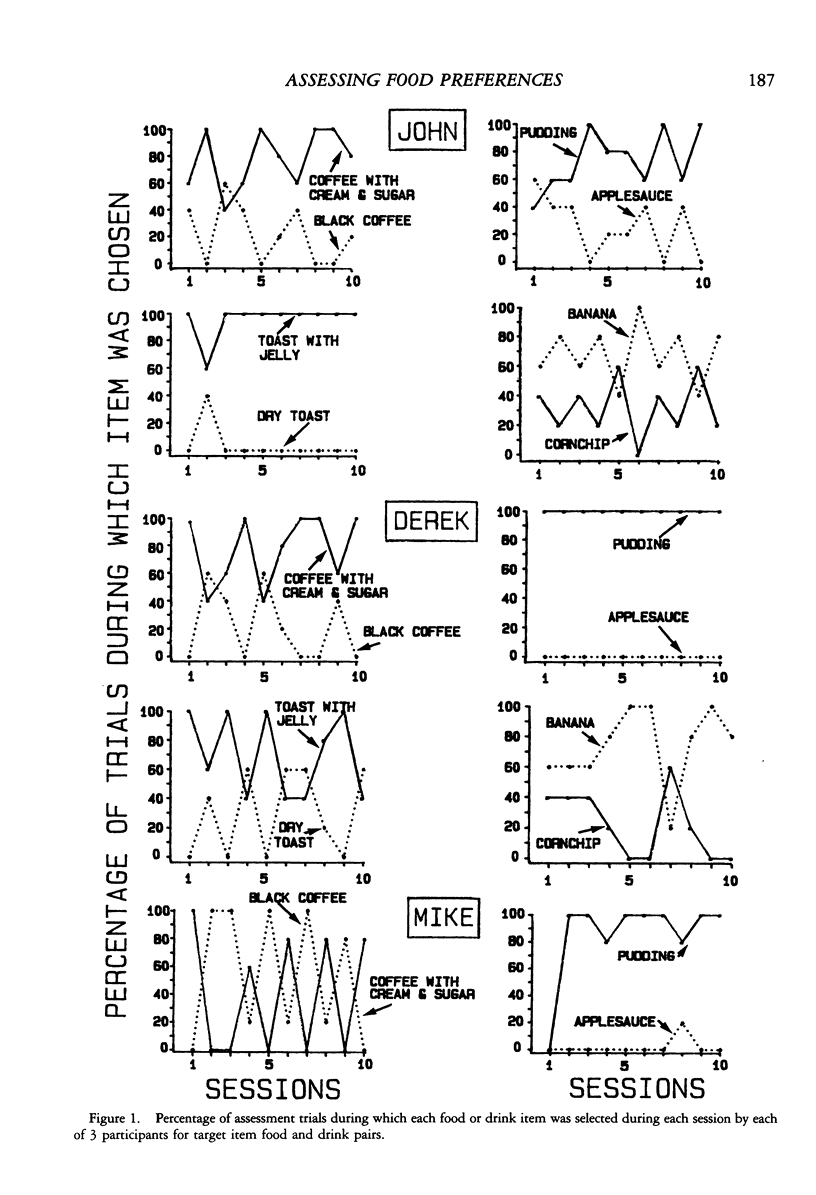
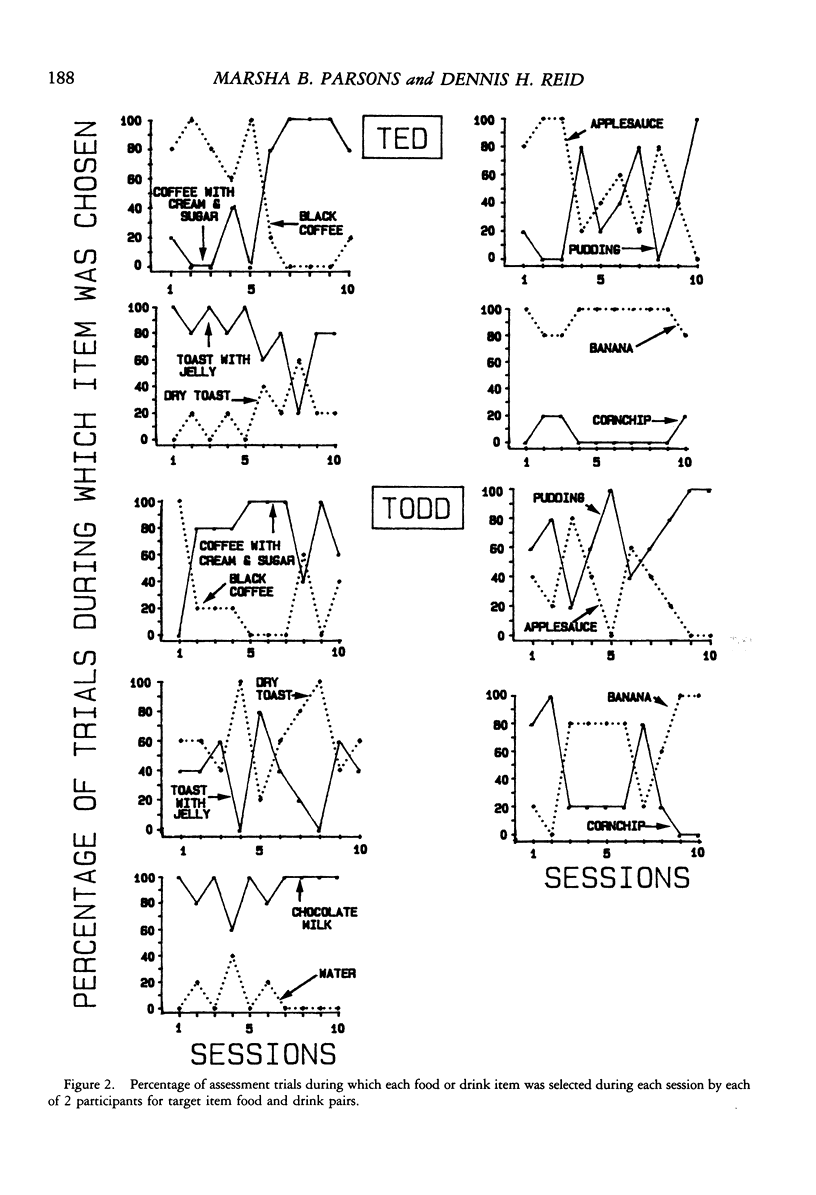
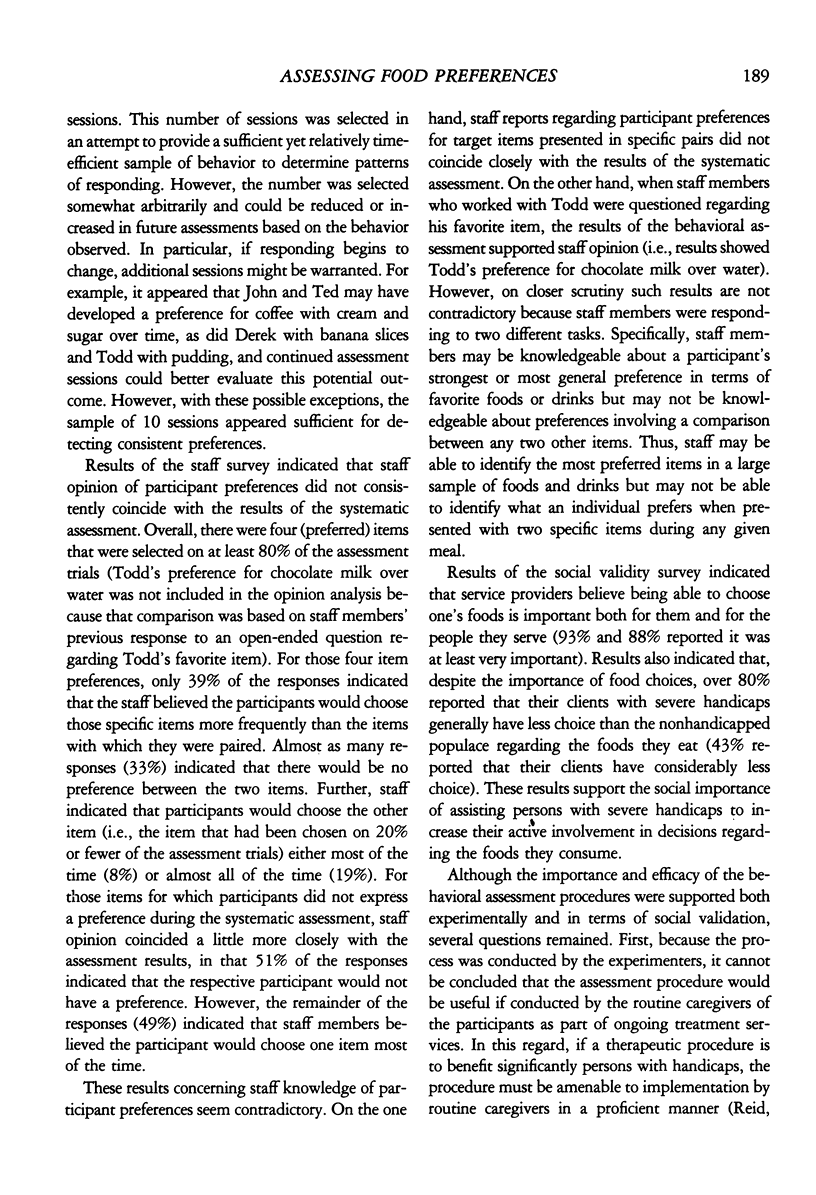
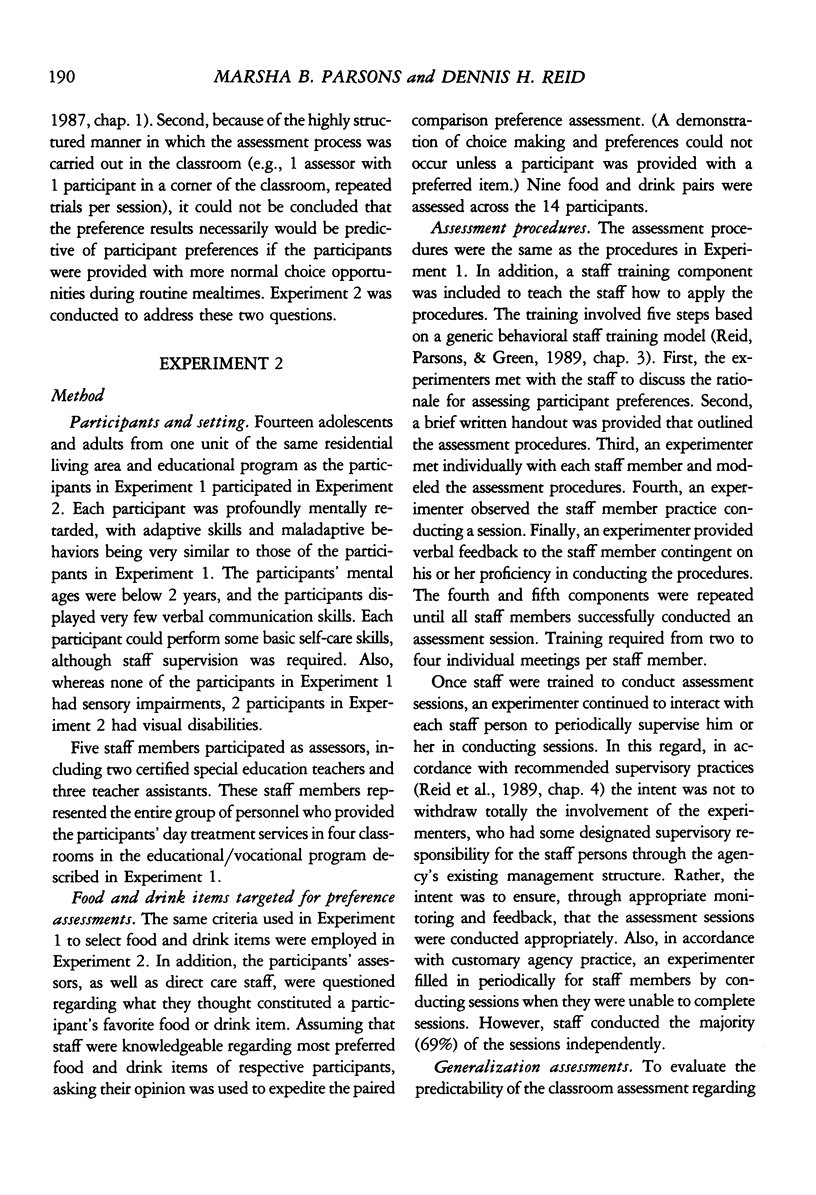
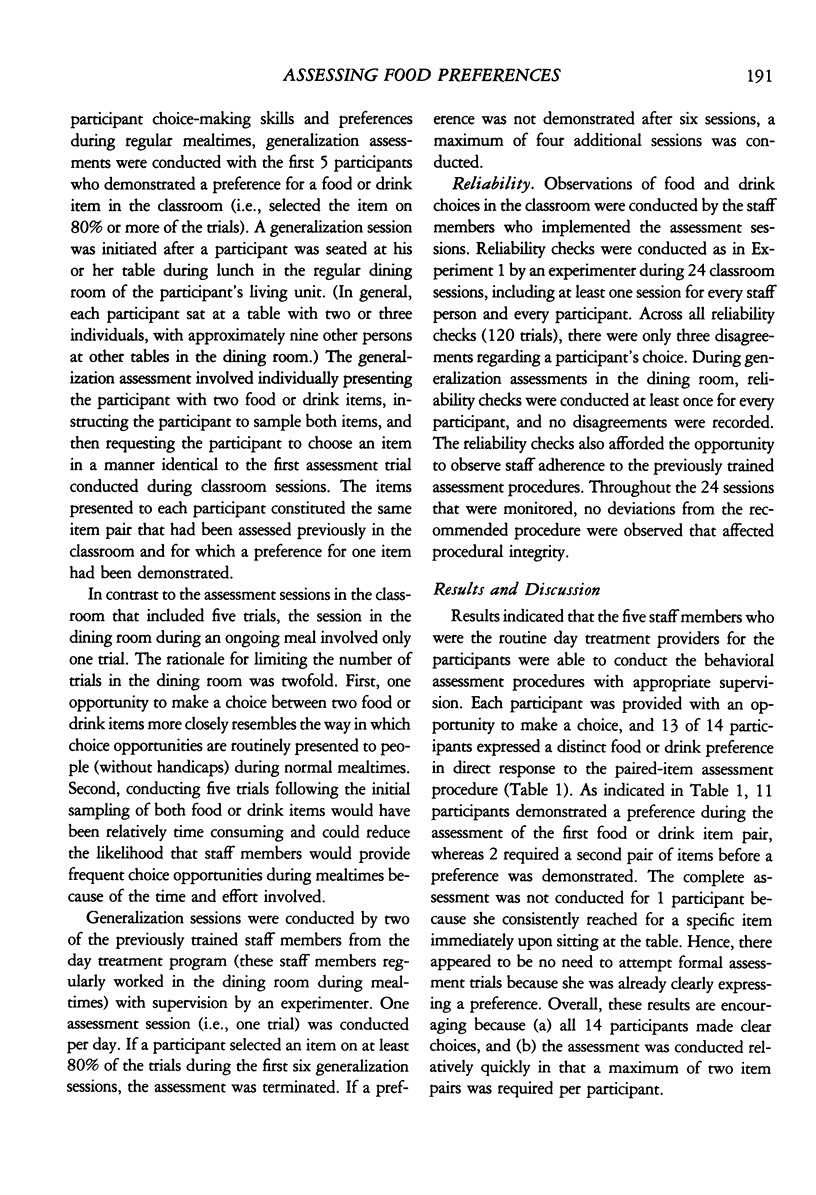
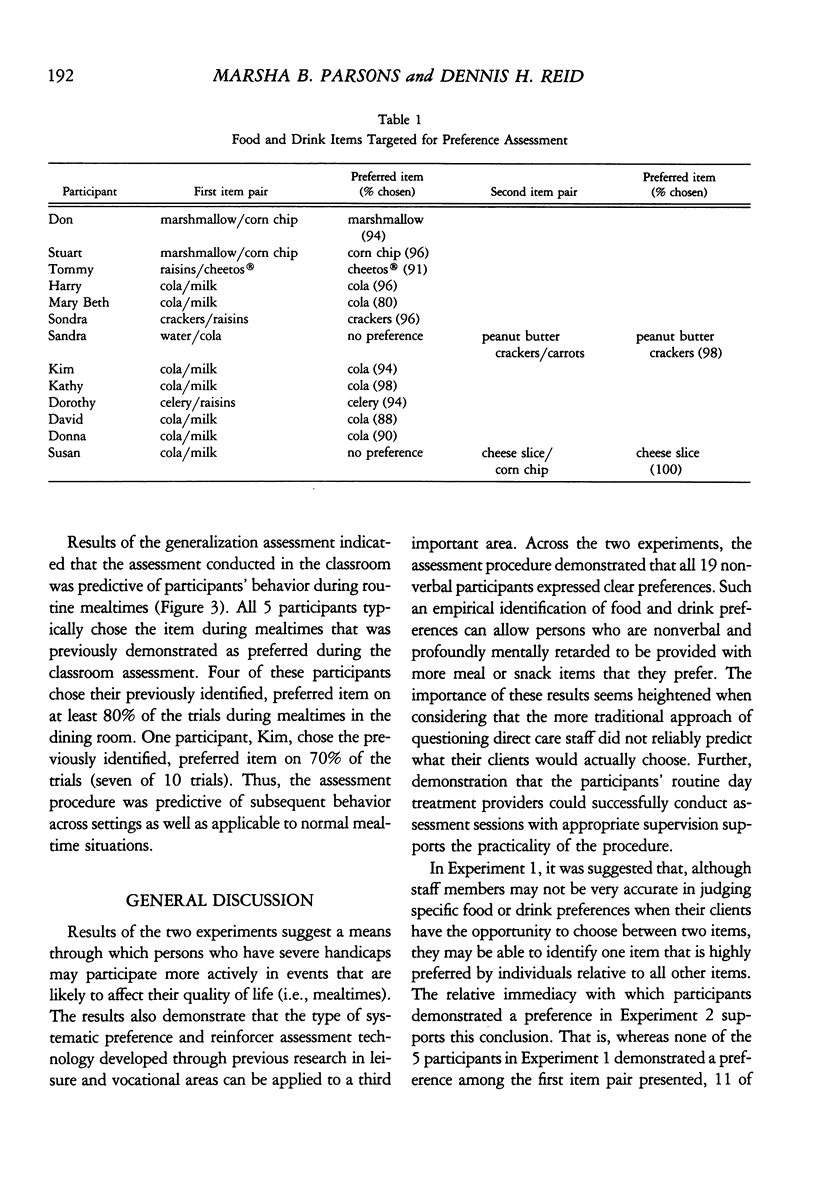
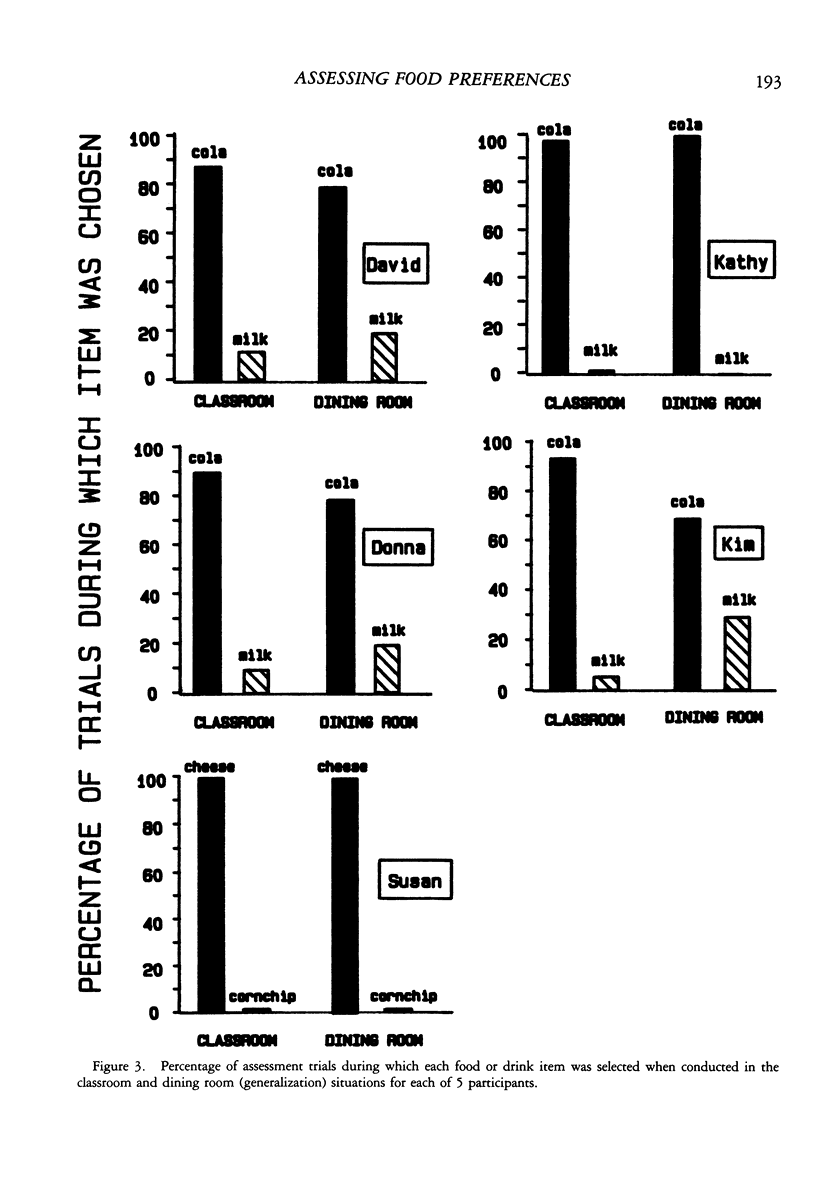
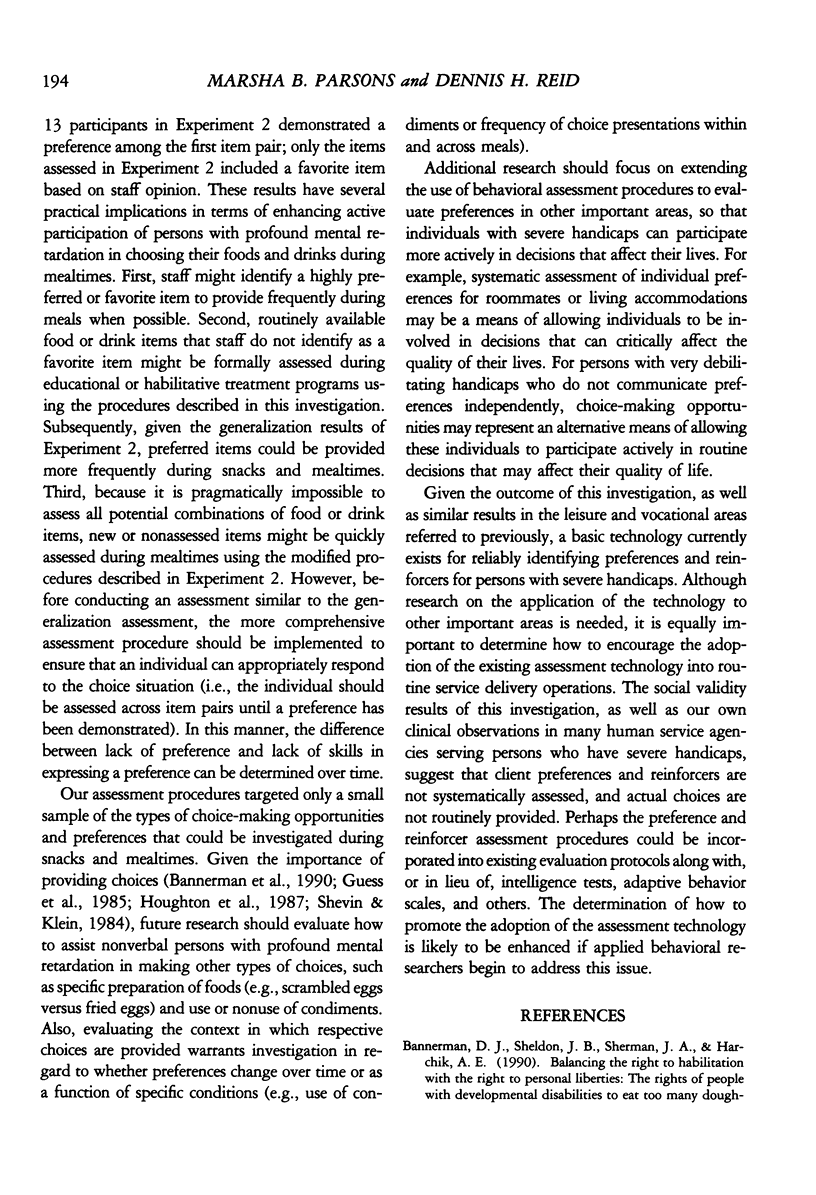
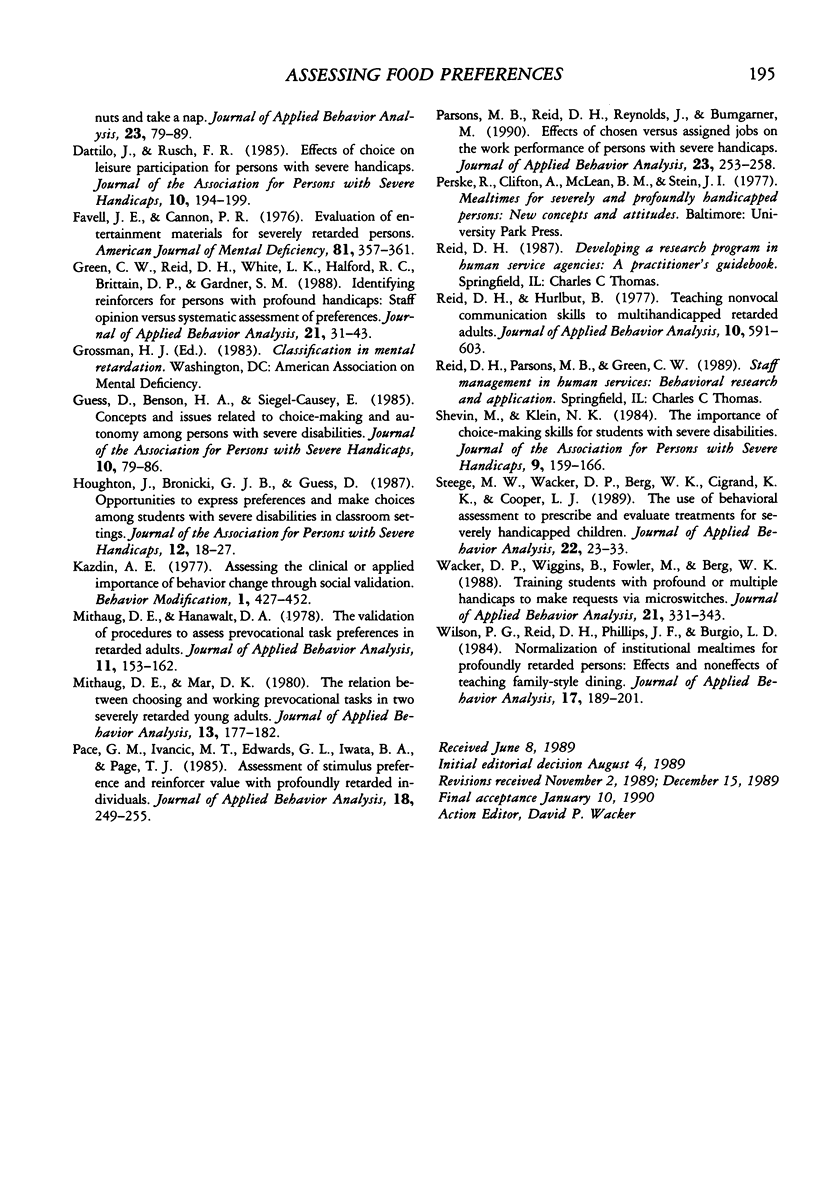
Selected References
These references are in PubMed. This may not be the complete list of references from this article.
- Bannerman D. J., Sheldon J. B., Sherman J. A., Harchik A. E. Balancing the right to habilitation with the right to personal liberties: the rights of people with developmental disabilities to eat too many doughnuts and take a nap. J Appl Behav Anal. 1990 Spring;23(1):79–89. doi: 10.1901/jaba.1990.23-79. [DOI] [PMC free article] [PubMed] [Google Scholar]
- Favell J. E., Cannon P. R. Evaluation of entertainment materials for severely retarded persons. Am J Ment Defic. 1977 Jan;81(4):357–361. [PubMed] [Google Scholar]
- Green C. W., Reid D. H., White L. K., Halford R. C., Brittain D. P., Gardner S. M. Identifying reinforcers for persons with profound handicaps: staff opinion versus systematic assessment of preferences. J Appl Behav Anal. 1988 Spring;21(1):31–43. doi: 10.1901/jaba.1988.21-31. [DOI] [PMC free article] [PubMed] [Google Scholar]
- Mithaug D. E., Hanawalt D. A. The validation of procedures to assess prevocational task preferences in retarded adults. J Appl Behav Anal. 1978 Spring;11(1):153–162. doi: 10.1901/jaba.1978.11-153. [DOI] [PMC free article] [PubMed] [Google Scholar]
- Mithaug D. E., Mar D. K. The relation between choosing and working prevocational tasks in two severely retarded young adults. J Appl Behav Anal. 1980 Spring;13(1):177–182. doi: 10.1901/jaba.1980.13-177. [DOI] [PMC free article] [PubMed] [Google Scholar]
- Pace G. M., Ivancic M. T., Edwards G. L., Iwata B. A., Page T. J. Assessment of stimulus preference and reinforcer value with profoundly retarded individuals. J Appl Behav Anal. 1985 Fall;18(3):249–255. doi: 10.1901/jaba.1985.18-249. [DOI] [PMC free article] [PubMed] [Google Scholar]
- Parsons M. B., Reid D. H., Reynolds J., Bumgarner M. Effects of chosen versus assigned jobs on the work performance of persons with severe handicaps. J Appl Behav Anal. 1990 Summer;23(2):253–258. doi: 10.1901/jaba.1990.23-253. [DOI] [PMC free article] [PubMed] [Google Scholar]
- Reid D. H., Hurlbut B. Teaching nonvocal communication skills to multihandicapped retarded adults. J Appl Behav Anal. 1977 Winter;10(4):591–603. doi: 10.1901/jaba.1977.10-591. [DOI] [PMC free article] [PubMed] [Google Scholar]
- Steege M. W., Wacker D. P., Berg W. K., Cigrand K. K., Cooper L. J. The use of behavioral assessment to prescribe and evaluate treatments for severely handicapped children. J Appl Behav Anal. 1989 Spring;22(1):23–33. doi: 10.1901/jaba.1989.22-23. [DOI] [PMC free article] [PubMed] [Google Scholar]
- Wacker D. P., Wiggins B., Fowler M., Berg W. K. Training students with profound or multiple handicaps to make requests via microswitches. J Appl Behav Anal. 1988 Winter;21(4):331–343. doi: 10.1901/jaba.1988.21-331. [DOI] [PMC free article] [PubMed] [Google Scholar]
- Wilson P. G., Reid D. H., Phillips J. F., Burgio L. D. Normalization of institutional mealtimes for profoundly retarded persons: effects and noneffects of teaching family-style dining. J Appl Behav Anal. 1984 Summer;17(2):189–201. doi: 10.1901/jaba.1984.17-189. [DOI] [PMC free article] [PubMed] [Google Scholar]


